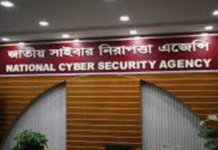
The Bhadra, once a free-flowing river in Khulna’s Dumuria upazila, has been turned into a narrow canal over the years, thanks to encroachment by brick kilns run by local influentials, including elected representatives.
A report prepared by Bangladesh Water Development Board (BWDB) Khulna last December listed nine brick kilns, including those operated by a lawmaker and chairmen of a upazila and a union parishad, on a four-kilometre stretch on one bank of the Bhadra in Kharnia union.
A total of 18 brick kilns along the Bhadra and Hori rivers were named in the BWDB Khulna list.
BWDB officials say the list will include more names gradually as brick kilns have been set up on both banks of Bhadra and the lowland adjacent to the Upper Shailmari and Hori rivers.
Due to their encroachment, the flow of the Salta, a branch of the Bhadra river, and at least three connecting canals has stopped completely, The Daily Star found during a recent visit.
On the river banks, the grabbers are using excavators to dig out soft soil and mud, deposited in large amounts in the winter months when river flow is slower. They use it to make bricks, said locals.
Iqbal Hossain of Kharnia village said he witnessed workers load bricks into sacks and throw these into part of the river in front of the respective kiln. This way, they encourage greater silt deposits and expand even further onto the river land.
Though grabbing river land is a criminal offence and the occupiers have been running these brick kilns for the last 12 years, the local administration is yet to take any visible action against them other than sending notices to the brick kiln owners.
According to the Brick Making and Establishment of Bricks (Control) Act 2013, setting up of brick kilns on government or privately owned forests, sanctuaries, agricultural land, gardens and wetland areas is a punishable offence.
One of the brick kilns on the list of grabbers is KPB (Kalapada) Bricks, which occupies 175m of Bhadra’s left river bank.
Lawmaker from the Khulna-5 constituency (Dumuria-Phultola) and former Fisheries and Livestock Minister Narayan Chandra Chanda, admitted that he owns this brick kiln but denied occupying river land.
“I have not grabbed this land,” the MP, also president of the Dumuria Upazila Brick Owners’ Association, told The Daily Star yesterday.
“When this char land emerged, it was allocated by the DC office to the landless and we leased it from them [the landless]. If the government takes any measures to dredge the river, we will stop operating the brick kiln and surrender the land to the government.”
The other brick kilns found by the BWDB Khulna to have grabbed river land include Setu Bricks, owned by Dumuria Upazila Chairman Ajaz Ahmed, and KB Bricks, owned by UP chairman of Dumuria Sadar Humayun Kabir Bulu.
According to BWDB Khulna’s report, these brick kilns owned by elected officials among others have each grabbed 175m to 250m into the Bhadra river while four brickfields in Gutudia union each occupied 190m-250m of the banks of Upper Shailmari river.
The report shows the upazila chairman’s Setu Bricks occupies 230m into the Hori river, and the UP chairman’s brick kiln KB Bricks occupies 210m into the left bank of Bhadra.

Contacted, Humayun Kabir Bulu, owner of KB Bricks and UP chairman of Dumuria Sadar, said, “Most of the land has been taken from local owners after signing on a non-judicial stamp over 15 years ago and some land belongs to the Water Development Board, where we are just piling up the soil.”
Asked if there was any approval from the Department of Environment and the district administration, he replied, “I am operating the brick kiln with all the approval.”
Upazila Chairman of Dumuria Ajaz Ahmed said he had built the brick kiln, Setu Bricks, in accordance with all the rules of the law.
“I leased the land from a local landowner. There is no land of the river in my brick kiln. I am not engaged in the filling of the river,” he said.
“I don’t know who made this list and what the process was,” he said, adding he was yet to get any notice from the Water Development Board.
Polash Kumar Banerjee, executive engineer of Water Development Board’s Khulna Management and Maintenance Division-1, told The Daily Star that the brickfields on the list are slowly killing the local rivers.
He added that these 18 brick kilns aren’t all — the list of river land grabbers is not complete.
Dumuria UNO Abdul Wadud said of the 37 brick kilns in the upazila,18 brick kilns built on river banks have been listed.
“I sought all their legal papers and now I am scrutinising these,” he said, adding that the eviction drive will start as soon as this process is completed.
“I am sure most of them occupied river land,” the UNO told this newspaper.
Chairman of Atlia Union Parishad Kumar Roy told The Daily Star that there are 11 brick kilns, operating on the banks of the Bhadra in his union, which are degrading the environment and damaging crops.
He said two brick kilns in particular are aggressively occupying river land ignoring the free flow of river. These are located beside the Kharnia bridge.
Saifur Rahman Khan, director of Department of Environment in Khulna, told the Daily Star that at the moment it is not possible to say which brickfields have been built occupying the Bhadra or Hori river or are destroying the environment.
“We give environmental clearances according to certain criteria but the district administration oversees these as a whole, sometimes conducting mobile courts.”
According to the Deputy Commissioner’s Office, there are 153 licensed brick kilns in Khulna.
Although the registration of these brick kilns have to be renewed every year, most of the brick kilns continue to operate without renewal as they lack the required documents, officials from the DC office said.









